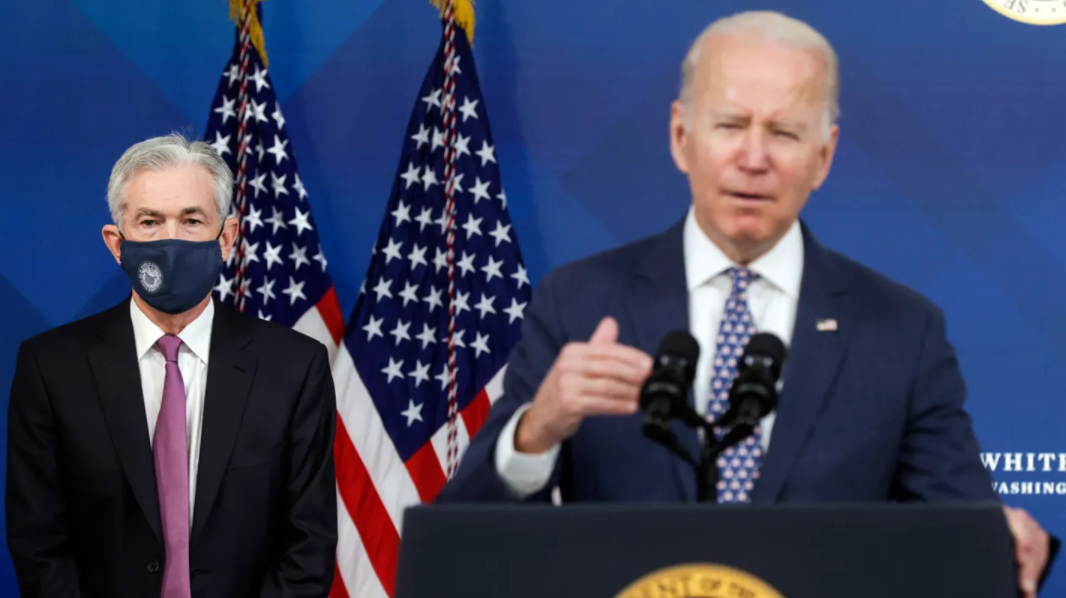Fri Feb 11, 2022
Friday / February 11
US inflation
Consumer prices in the world's largest economy rose to the highest level in the last 40 years.
CPI rose more than expected last month, the US Department of Labor reported on Thursday. Federal Reserve Chairman Powell, the Biden administration and Secretary of the Treasury Yellen repeatedly argued that inflation will be 'transitory', before abandoning the word.
While the outlook for inflation worsens, it strengthens the possibility of a significant rate hike this year.
The January consumer price index in the US increased by 7.5% compared to a year ago, the highest reading since February 1982. The Dow Jones consensus estimate was 7.2%,
Core CPI rose 6% compared to the 5.9% forecast, hitting its highest level since August 1982. Monthly CPI rates were also warmer than expected; Both headline and core CPI rose 0.6% compared to forecasts for a 0.4% increase.
Fuel oil increased by 46.5% compared to the same period of the previous year and by 9.5% compared to the previous month. Energy costs overall rose 0.9% monthly and 27% year-on-year. Food costs were up 0.9% per month and up 7% from last year.
Equity market futures fell after the report, and tech stocks sensitive to interest rate decisions fell particularly hard. Government bond yields rose sharply as the 10-year benchmark bond touched 2%, its highest level since August 2019.
Markets also entered into more aggressive expectations about interest rate hikes in the upcoming period. Deutsche and Citi Group both increased their Fed rate hike expectations for March to 50 basis points.
Russian exercise
Russia began 10-day military exercises with its neighbor Belarus on Thursday.
According to NATO, about 30,000 Russian soldiers are participating in the exercise in Belarus.
Russia has deployed more than 100,000 troops at various points along the Ukrainian border.
Moscow denies the allegations that it is planning to invade Ukraine while global tensions continued over the country, which is located between Russia and the EU persist. Moscow sought legal assurances that its neighbor Ukraine would never be allowed to join NATO, and demanded that the alliance withdraw its eastern European deployments.
ECB warning
The European Central Bank's ECB has told eurozone banks that their top priority is to strengthen their cyber defenses as tensions with Russia linger.
“We are asking [banks] to strengthen their cyber regime measures and look at a potential increase in attacks and the danger of these attacks going forward,” Andrea Enria, chair of the European Central Bank supervisory board, told a news conference on Thursday.
Iran-US talks
Negotiations aimed at reviving the 2015 Iran nuclear deal have resumed this week in Vienna, ten months after they first began, but more uncertainty and mutual distrust keep pushing away a resolution.
US Special Representative for Iran Rob Malley is in the Austrian capital for indirect talks mediated by European diplomats, as Washington and Tehran refuse to meet directly. The Biden administration believes a deal is on the horizon – but if nothing is reached in a few weeks, it may be too late.
US stocks
U.S. stocks slumped after the inflation report showed prices soaring faster than expected.
The tech-heavy Nasdaq Composite Index fell 2.1% to 14,185.64, while the S&P 500 fell 1.8% to 4,504.08 and the Dow Jones Industrial Average fell 526.47 points, or 1.47%, to 35,241.59. Stocks were volatile throughout the day, with all three major averages briefly turning positive at one point, with the Dow falling more than 600 points to session lows.
Stocks closed in the red on speculation that the Fed will become more aggressive with its tightening policy to fight inflation.
